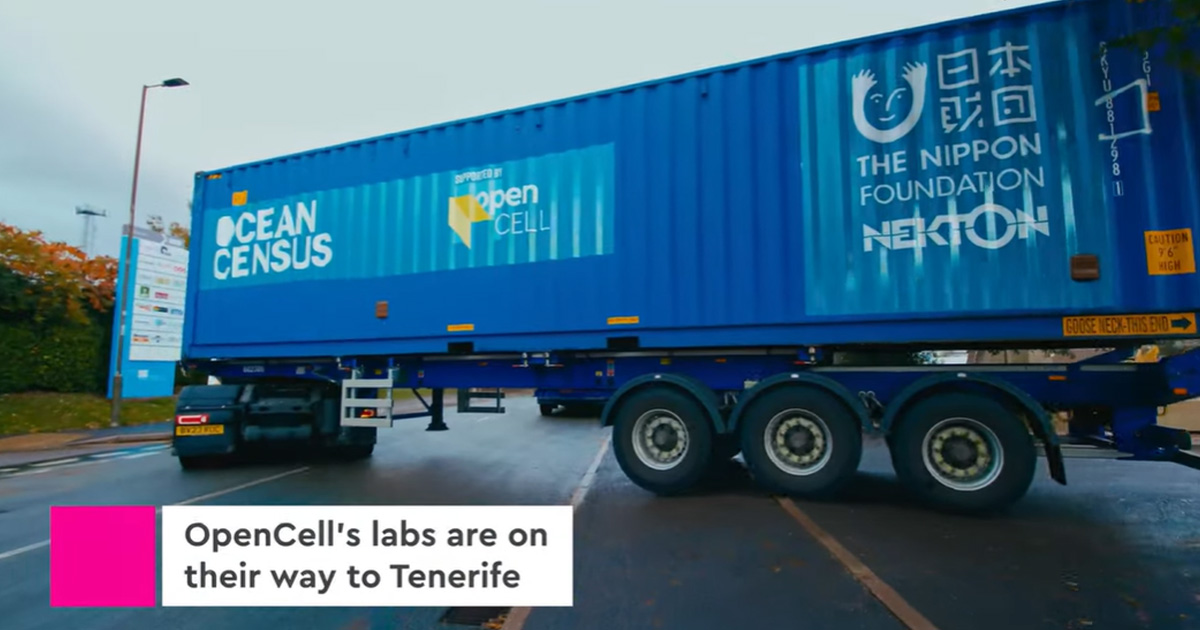Tenerife's Radazul Port welcomed two state-of-the-art mobile shipping container laboratories, a pivotal component of an innovative toolkit being developed by Ocean Census and OpenCell. These laboratories will play a central role in an ambitious mission to meticulously explore and document ocean life.
Ocean Census, the pioneering open network launched by The Nippon Foundation and Nekton, has partnered with OpenCell Labs as part of a global effort to accelerate the pace of ocean species discovery. OpenCell’s mobile laboratory systems will enable marine scientists to conduct shoreside taxonomy on location, helping to support the delicate preservation and recording process at the moment of recovery.
This landmark partnership, rooted in innovation and a shared vision for a sustainable future, will leverage cutting-edge cyber-taxonomy, which will take place in the state-of-the-art mobile laboratories, in a global effort to identify 100,000 new species over the next decade. The two laboratories will be deployed on the upcoming Ocean Census Macaronesia Expedition based out of Radazul Marina in Tenerife.
The collaboration between OpenCell and Ocean Census exemplifies a joint effort to demobilize resources from pandemic-related activities and redirect them toward urgent environmental concerns.
"During the global pandemic, we united on a global scale to use our skills and knowledge to address one of humanity's most critical crises. Now, we apply this expertise in collaboration with Ocean Census to tackle another pressing emergency – the biodiversity crisis."
Helene Steiner, CEO of OpenCell, comments: “The first usage of the containerized laboratories provided by OpenCell will be on the Ocean Census Macaronesia—Tenerife Submersible & Diver Expedition. This expedition is a significant undertaking aimed at exploring the rich, yet largely uncharted marine environments of Tenerife, Canary Islands, Spain. These state-of-the-art mobile labs will enable researchers to conduct on-site analyses, enabling scientists to immediately process, document, and analyze samples.”
“These mobile laboratories will not only streamline the process of species identification and data gathering but also enhance the efficiency of research conducted in remote and often challenging marine environments. The use of these advanced laboratories in the Ocean Census Macaronesia Expedition is a prime example of how the program is integrating cutting-edge technology with field research to accelerate the understanding and preservation of marine biodiversity, says Daniel Moore, Ocean Census Expedition Science Manager.
The integration of advanced facilities and skills is critical to the Ocean Census mission to uncover life within the ocean’s biodiversity hotspots and contribute to global conservation strategies.



